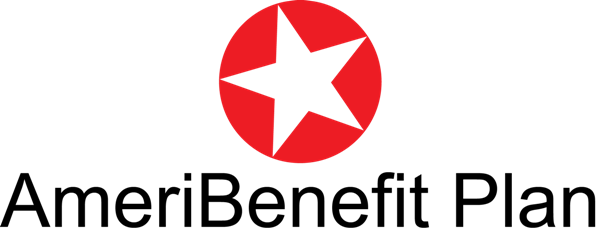Lesson 1: Focus
There is no such thing as a typical day for a marketing technology consultant. Eight great years into my consulting life as Chief Strategy Officer with
Digital Pi, I liken my work to a puzzler working a dozen puzzles spread out on the table at the same time. I love my work helping companies get more ROI from marketing technology (MarTech) because I get to work with an ever-changing variety of people, process, technologies, and challenges. I like to joke about trying to “unsee” some of my experiences – but I’ve come to learn that those are some of the most valuable lessons to share we can all learn from.
The beginning of a new year presents a rare moment to step back from the day-to-day chaos of life in MarTech to consider what to do better in the new year. To help you get the new year off to a great start, I’d like to share some ideas that hit me a few weeks ago while I was practicing guitar. What can classical guitar tell us about MarTech? As it turns out – a lot.
First, there are a few things you need to know about my life with classical guitar. I was introduced to the classical guitar about sixteen years ago when our four-year-old daughter started Suzuki method lessons. Classical guitar is different than acoustic guitar in some important ways. Classical guitars have nylon strings whereas acoustic guitars use steel. Nylon strings are better suited to the fingering style of the right-hand. The music taught in the
Suzuki method is classical (hence, “classical” guitar). I was our daughter’s parent-guitar-teacher until she was thirteen. I spent a half hour with her every day, guiding practice sessions to prepare her for her weekly teacher-led classes. When she was thirteen,
her guitar-practicing became few and far between so I took her lessons for a month in the hope that she would want to restart them after a pause. During that time, I discovered that I liked learning classical guitar so much that when my month of lessons was over, I wound up splitting the lessons with her. I continue taking lessons -- now I’m hooked. Like MarTech, I’ve discovered classical guitar to be both a challenging and rewarding pursuit.
Here then is one of my critical few lessons-learned: narrow your focus to work on improving the parts that matter most. A big “ah-ha” teaching moment for me occurred when, instead of practicing an entire classical guitar piece all the way through from beginning to end, I zeroed in the part that needed work, and laser-focused on two measures of music for an entire practice session. If MarTech presents a big universe of opportunity to improve something (it does), the question you should be asking is: which part should I improve upon to achieve (what) future-state outcome?
It’s true: on any given day there are a million MarTech things you can implement, learn, fix, and generally do. There isn’t enough time or resources to do them all. Before you buy your next piece of marketing technology, define what you want the world to look like down the road when it’s operational. Think in terms of business benefit. For example, instead of announcing to everyone that you are “doing Account Based Marketing this year,” work backwards from what it will take to convert your list of ideal prospect accounts to customers. Depending on your business, that could be the crux of your entire MarTech plan for the year. Keep in mind that assumes your MarTech plan is anchored to a marketing plan that in turn is tethered to your company’s annual business plan.
Now, back to what I said earlier about focusing my guitar practice on a small part that needs improvement, to the disciplined exclusion of practicing the rest of the piece. My guitar teacher tried many times to persuade me to adopt this best-practice, but my stubborn habit of attacking pieces from top-to-bottom over and over was well-established. I must have exasperated her, because one day during a lesson she said: “Tom, I don’t think you believe me when I tell you you’ll learn the piece faster and enjoy your time more if you just focus on these two measures next week.” I was embarrassed in that moment when I realized I had disregarded her life-long learned experience as a classical guitarist, believing I knew better. So, the next time I practiced I tried it her way and – of course she was right. Now when I have a guitar lesson, she helps me know where to focus my time to get more from my practice.
I’m a better classical guitarist now because I use my practice time wisely, focusing on what matters instead of trying to tackle a whole piece at once every time. I still have to fight the urge to play the whole piece top to bottom before I’m ready, but I am getting better at narrowing my focus as I continue to unlearn poor practice habits.
So, start this year off right by considering what outcomes matter and where to focus your time to achieve those outcomes. In my experience with clients, the practitioners who come out on top know what to say “yes” to – and more importantly they know how and when to say “no” without breaking glass. I believe one of the hardest things about making great MarTech happen is getting everyone to focus on what will move the revenue needle and maintaining that focus. Make this the year you identify the right critical few things to focus on and stick to them. I think you’ll experience a lot more success.
Here's a short video with a few more thoughts on this topic, along with me trying to focus on playing my classical guitar.
Tom Grubb is Chief Strategy Officer for
Digital Pi, a leading full-service marketing technology consultancy joined with
Merkle B2B helping companies get the most value from their investment in marketing technology. Tom has over 20 years of marketing executive leadership including VP Product Marketing at Marketo. He has held marketing leadership positions at start-ups, mid-size and enterprise companies including Intuit, CA Technologies, ThreatMetrix (acquired by RELX), and co-founder of Bluecurve (acquired by Red Hat).


